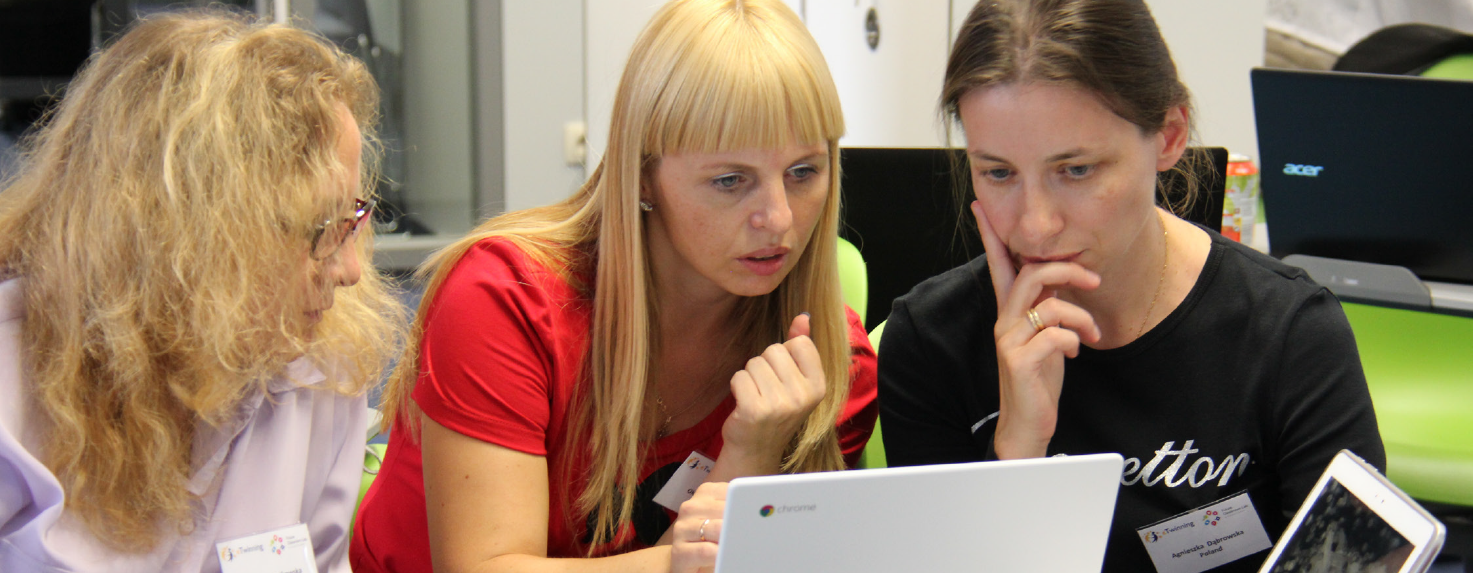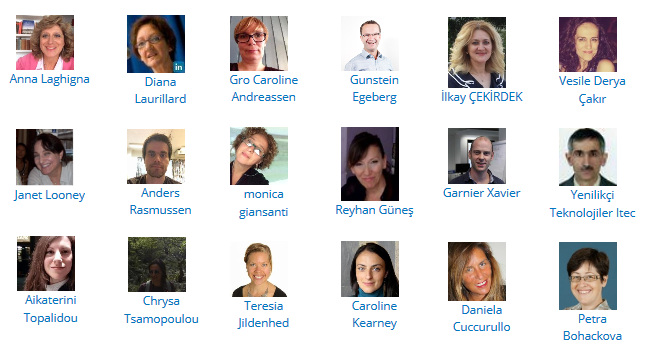Introducing Technology-Enhanced Teaching
MENTEP

Welcome to the MOOC Introducing Technology-Enhanced Teaching
On this page
Did you know that two-thirds of teachers in the European Union learn about ICT in their own time, and almost all are positive about its impact on students, according to the Survey in schools: ICT and education (2013)? Despite this readiness, however, many teachers in Europe still lack the competence to use ICT in their teaching and use it only to a small extent in their classrooms. In order to meet this challenge, the European project MENTEP (Mentoring Technology-Enhanced Teaching, managed by European Schoolnet and funded by the European Commission) is developing an online self-assessment tool to empower teachers to progress in their Technology-Enhanced Teaching (TET) competence at their own pace.
This course, which is the first in the MENTEP MOOC series on improving Technology-Enhanced Teaching, is an integral part of the project. Over this first course’s 4 modules, we will look at how TET competence is currently defined in national and international frameworks, and how certain countries are using online assessment tools to monitor this. We will also explore how teachers’ TET competence can be meaningfully assessed with a particular focus on the role of online self and peer-assessment. At the heart of the course will be examples of teachers’ experiences of using their TET competence to effectively teach their students.
Join us for this introductory course, and then be invited to join the follow-up MOOC in which you will have the chance to collaboratively help us define a new self-assessment tool we are developing for teachers. If you are a policymaker, watch out particularly for the last course of the MENTEP MOOC series, which will provide a step-by-step guide on how to go about a similar policy experimentation in your country and provide training opportunities for teachers and school heads to enhance their professional development.
Enrol now and help us spread the word by tweeting #MENTEPcourse and joining our Facebook group here.
Learning objectives
- Boosting teachers’ competence and confidence to use ICT in the classroom
- Increasing the number of teachers able to innovate using ICT
- Enhancing the uptake of ICT in teaching and learning
- Strengthening the professional profile of the teaching profession
- Improving data on teachers’ digital competence and training needs
- Promoting stronger coherence between EU and national approaches to the assessment of Technology-Enhanced Teaching competence
You can download the course content here.
Prerequisites
The course is open to anyone interested in the topic. However, the course is specifically targeted at teachers, but it is also of relevance to head teachers and policymakers working in the area.
Modules
- Module 1: What Is Technology-Enhanced Teaching (TET) Competence?
- Module 2: How Can TET Competence Be Meaningfully Assessed?
- Module 3: Existing Online Assessment Tools for TET Competence
- Module 4: Teachers as Learning Designers and Peer Reviewers
Certification
You will receive digital badges for every completed module of the course as well as a course badge and a course certificate upon completion of the full course.
Note to teachers from Portugal: You can get your successful participation in a European Schoolnet Academy course formally recognised as a valid continuous professional development, and thereby acquire the relevant number of training hours, by sending your certificate to the Conselho Científico e Pedagógico de Formação Contínua (CCPFC) at Rua do Forno, nº 30, 1º andar - apartado 2168, 4700 - 429 Braga, Portugal. For more information, please contact the CCPFC.
Course Staff

Disclaimer and Copyright
The MENTEP project is a European Policy Experimentation funded by the European Commission via the Erasmus+ programme. This publication reflects the views only of the authors and it does not represent the opinion of the European Commission, and the European Commission is not responsible or liable for any use that may be made of the information contained therein.
All content on this course unless specified otherwise is licensed under a Creative Commons Attribution-ShareAlike 4.0 International License

